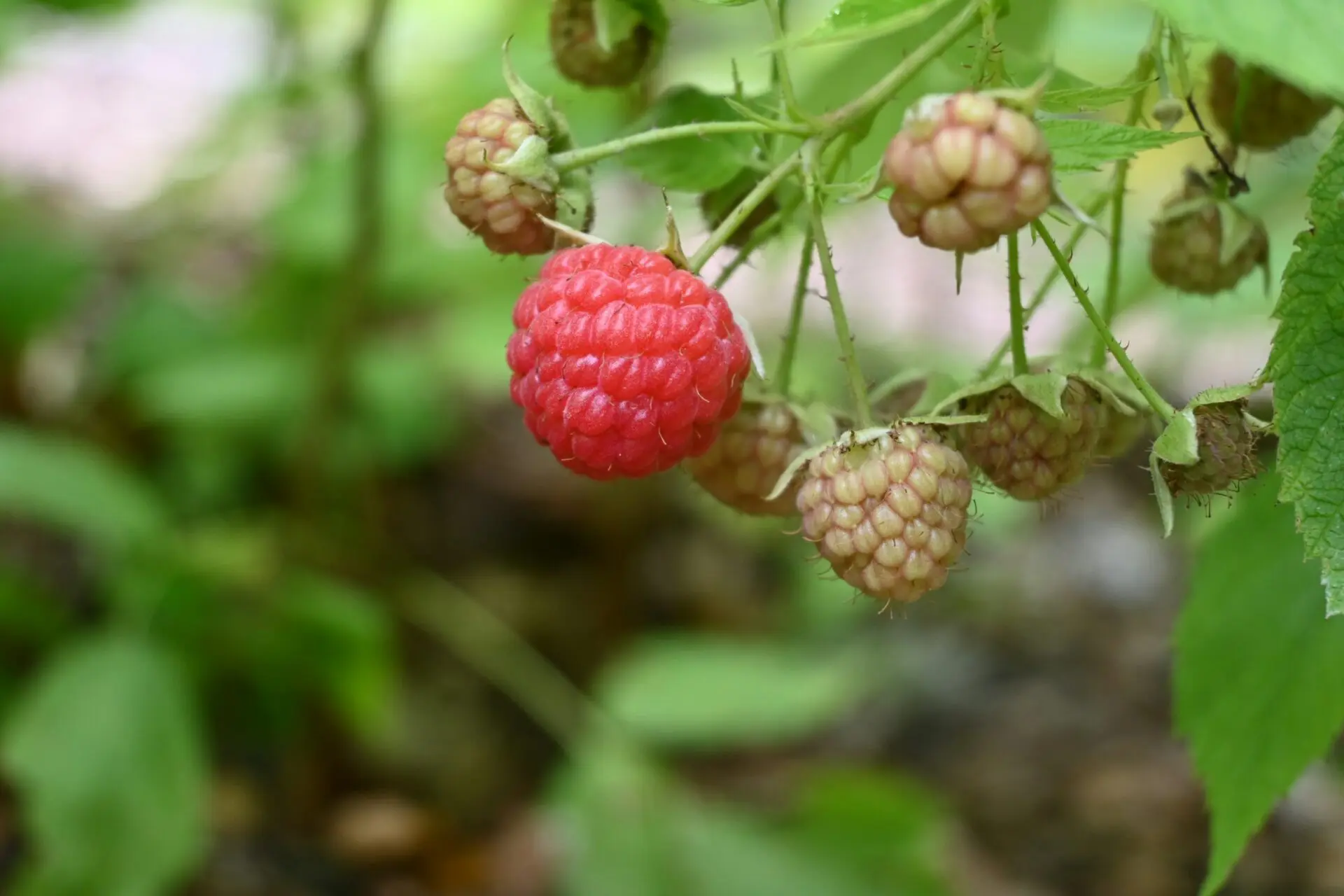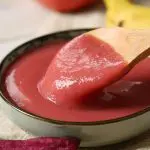Get The Most Out of Your Raspberries from Backyard Eats
Harvesting Raspberries
When It’s Ready
- Observe the fruit’s color and texture: Ripe raspberries will have vibrant colors and a slightly soft texture.
- Gently tug the fruit: If it easily comes off the stem without resistance, it is ready for picking.
- Harvest in the early morning: The cool temperatures help preserve the fruit’s freshness and flavor.
- Summer to early fall, with a peak harvest usually in July
When It’s Too Late
- Overripe fruit may become mushy, discolored, or start to decay.
- Regularly check your plants to ensure you don’t miss the optimal harvest time.
How To
- Wear gloves to protect your hands from thorns.
- Grasp the ripe fruit gently and twist it to detach it from the stem.
- Place the harvested fruit carefully in a shallow container to avoid crushing them.
- Avoid leaving harvested fruit out in direct sunlight for extended periods.
About Raspberries
Raspberries are cane plants that grow 4-7 ft tall. They require partial to full sun to thrive, and need trellising and pruning for proper support and ongoing care. Netting can also help protect the fruit from birds and squirrels.
Flowering/Fruiting Tendencies
Ever-bearing varieties of raspberries typically produce new canes in spring, fruit in the fall on the tips of canes, and fruit again in the next spring before dying during their second fall. This cycles continues with new canes. Other raspberry varieties will grow a new cane in year one and only fruit once in their second spring before dying in their second fall. Raspberries spread through underground runners and will come up all over the bed they’re planted in. They don’t stay in one “crown” like blackberries do.
Design Notes
Raspberries spread by runners which need to be removed from spreading outside the bed. Therefore raspberries can look unwieldy, especially in winter. They need a wire trellis to keep them upright for ease of maintenance, harvesting and pruning.
Care Notes
Raspberries benefit from compost and wood chip mulch in spring to promote growth. Remove any dead or dying canes, usually 3rd year canes, in spring. For ever-bearing varieties which fruit on their tips during their first fall season, canes can be “tipped” after fruiting in fall to promote fruiting down the rest of the cane in spring. This should be done after fruiting finishes and tips start to die. Other than removing dead canes, some patches can be thinned to promote healthier growth overall.
Newly planted perennials require some additional care to help establish and support the plants as they grow. Water newly planted perennials deeply at the root 2-3 times a week during the first growing season. Apply compost and wood chip mulch in the late winter/early spring.
Storing Raspberries
Fresh Storage: Place berries in a breathable container lined with paper towels in the refrigerator for up to five days.
Long-Term Storage: Freeze the fruit in a single layer on a baking sheet. Transfer it to a freezer-safe container for up to six months.

Cooking With Raspberries
- Raspberry Jam: Simmer raspberries with sugar and a splash of lemon juice until it thickens into a luscious jam. Use it as a spread on toast, pancakes, or in desserts like thumbprint cookies.
- Raspberry Smoothie: Blend raspberries with yogurt, a banana, and a splash of milk for a refreshing and nutritious smoothie. Add honey or maple syrup for extra sweetness if desired.
- Raspberry Crumble: Mix raspberries with sugar and a squeeze of lemon juice, then top with a crumble mixture made from oats, flour, butter, and sugar. Bake until the fruit is bubbling and the crumble is golden and crisp. Serve with a scoop of vanilla ice cream.
- Raspberry Fruit Salad: Combine cane fruit with other fresh fruits like strawberries, blueberries, and sliced peaches. Toss with a squeeze of lemon juice and a drizzle of honey for a vibrant and flavorful fruit salad.
- Raspberry Cobbler: Layer raspberries in a baking dish and top with a sweet biscuit dough. Bake until the fruit is bubbling and the biscuit topping is golden and cooked through. Serve warm with a dollop of whipped cream or a scoop of ice cream.

